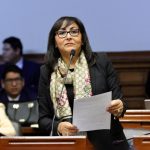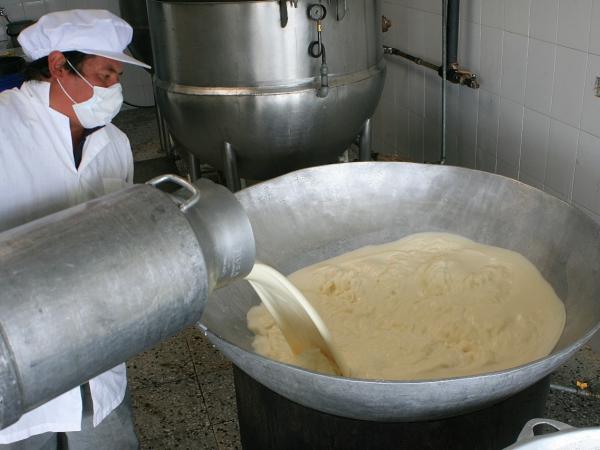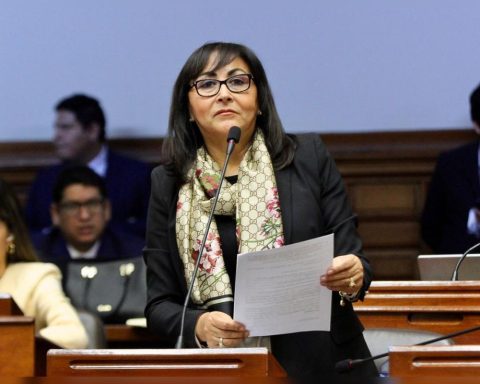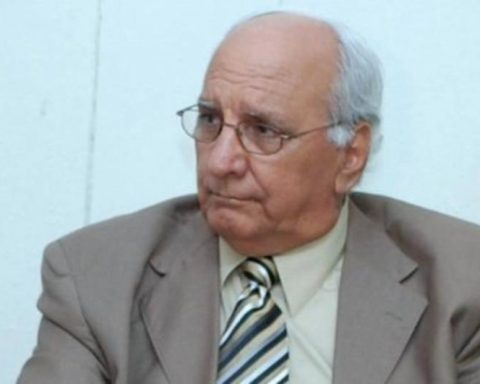
The fact that there are different views within Renovación Nacional (RN) is not even close to a novelty; That they arrive without clarity when it comes to negotiating positions with their peers, either. The marked and old differences that exist within the store based in Antonio Varas became evident again a week after the defeat in the second presidential round was consummated and that left its third candidate in the race, 11 points below the already elected President Gabriel Boric.
This situation, and linked to the urgency with which some in the sector seek to erect new leaders to confront, this time from the side of the opposition to the next four years of government, led to different personalities, who have little to do with a project in common, they fight the option of being the representative of the party that will occupy at least one year the presidency of the Senate.
Beyond the various warnings coming from the same right and that point out that the leaderships will be installed over time, and in addition to the different circumstances that an announced complex start of Government holds, the example of Yasna Provoste – who came to establish herself as a flag-bearer of the DC and, at the time, leader of the opposition, after his tenure as president of the Senate – it seems to be reason enough not to miss this opportunity.
And it is that, as the two largest forces in the Upper House have been relatively paired, unlike the outgoing government, Chile Vamos has the possibility of heading half the presidential term, and everything that entails has become a difficult offer to make. reject, mainly for those who, from some time to date, have sincere inmate their intentions to reach the highest magistracy or, failing that, to gain greater political capital to advance their personal career.
In this way, although the times regarding which of the two representatives of the sector will assume in the first place are not yet clear, in the UDI the issue would be closed, and it is the historical militant and founder of the unionism, Juan Antonio Coloma, the representative designated for that task. In the party they pointed out that their profile, with a long history and at the same time capable of generating agreements beyond their coalition, would fit perfectly with what is known until now as the only transversal agreement in Chile. We are going after the second presidential round and that says relationship with becoming a constructive opposition. “We want to make a difference with the recent opposition, which made President Piñera’s life impossible,” they argued.
In RN, not close to his peers, on the one hand, there is the helmsman Francisco Chahuán, who is known to have been seeking the possibility of establishing himself as leader of the coalition and, through that step, in the party’s presidential letter for some time. various periods. A similar situation, but from another side – a more personalist one – is that of the reelected senator Manuel José Ossandón, who already tried in the 2017 presidential elections. On the other hand, the representative of the so-called social right bloc broke into the interior of National Renovation, Paulina Núñez, who in an interview with ThirdOn Sunday, December 26, he called on the entire leadership of his community to retire and take charge of the continuous defeats.
In the case of the senator for the Fifth Region, he knows that if Paulina Núñez or Manuel José Ossandón is the letter that is erected, his leadership within the party would be at serious risk, since both candidates are from the opposing side and, as they relate in the internal, its installation has been “more than complex”. The struggle for internal power installed by its secretary general, Diego Schalper, has caused the helmsman to think very well about every step he takes, since most of the new officials who came under his management respond to the deputy for the Sixth Region. Although from the Desbordes sector they decided to shield him, to the detriment of Schalper, that does not remove the complexity of leading from day to day, indicated insider militants.
On the part of Manuel José Ossandón, who was the one who installed the idea of the social right and who at some point was complemented by the group led by Mario Desbordes, since he underwent his judicial process the waters separated, because – and this is how they relate it from the senator’s circle – “felt it was not sufficiently endorsed.” So much so that, at the time of contesting the Chile Vamos primary, Ossandón chose to endorse his support to an outsider, such as Sebastián Sichel. In RN the phrase “Ossandón sends himself alone” is known, that is, he does not respond to anyone, which makes his eventual inauguration become a real problem for the board. It should also be remembered that he voted in favor of the fourth withdrawal and that he abstained in the constitutional accusation against President Sebastián Piñera, which takes away several starting bonuses. In his favor, his conciliatory profile would play outside of Chile Vamos.
Regarding the recently elected senator for Antofagasta, Paulina Núñez, she does belong to the nucleus of the so-called social right, and who had hard encounters with Sebastián Sichel’s close circle, both before primary school and after having stayed with this instance the ex-DC. So much so that, after announcing his support for the fourth retreat, Sebastián Sichel himself took away his support and handed it over to his competitor in the north, which was not enough. An eventual arrival of Núñez to the front of the Senate means a great position for a sector that has permanently sought spaces of power, but has not achieved it, because his followers would not have the electoral strength that at some point they were thought to be dragging. This would explain the behavior that Desbordes is having, who has not had any problems in delivering clear signals to the toughest sector of the party and the conglomerate, as a way to find greater traction in his commitment to retaking the place he once had, once the social outbreak occurred.
To date, although the president of RN, Francisco Chahuán, has not lost the opportunity to remember that his party is the one with the highest representation in Parliament and as a political force, his detractors permanently hold him in the face of the loss of 11 parliamentarians, 400 one thousand fewer votes, and from going from 9 to 2 Cores in the Metropolitan Region.
National Renovation lost its last three presidential bets. First it was Mario Desbordes, who without the support of his entire party –and with intense friendly fire– lost the Chile Vamos primary at the hands of Sebastián Sichel. Then it was Sichel’s turn, who lost to José Antonio Kast. And, finally, the leader of the Republican Party, who fell by the wayside in the second presidential round.
In the Chamber the conflict belongs to the current opposition
In the Chamber of Deputies and Deputies, things are not so resolved and rather the state is still liquid. The biggest problem is the current opposition, which already in the previous period –and being a majority– lost the front, which was left in the hands of the National Renovation, after the deputy Pamela Jiles avoided giving the majority to the opposition.
The idea of not repeating the same history does not seem so easy, because, after a short walk and in still incipient conversations, they have found several stones in the way that could complicate the goal of facilitating the legislation of important projects of the next Government .
The first hurdle is the relationship with the Humanist Party and the Ecologist Party, whose 5 representatives – the votes that the rest of the opposition lacks to be a simple majority – will work together in Congress. The complexity of this action lies in the fact that Deputy Jiles would have the intention of heading the Chamber during the first year of the new legislative period, that is, in the middle of the installation of the new Government. Known is the null relationship between Jiles and the President-elect, so there would be the risk of having an opponent head the aforementioned instance.
Added to that, there is the fact that it is Pablo Maltés (Jiles’s partner and advisor) who is representing them in those conversations, that is, another who does not have the doors open in the center-left and in a wide sector of the left. In that bench, they flatly ruled out the existence of an open path to converse with the right wing, but there are recent precedents for several not to believe in the promises of that nucleus.
In the center-left, several think that Jiles “went overboard” and that neither they nor the center-right would be willing to “pay that cost”, nor an eventual arrival of the deputy to lead the Constitution Commission – exchange currency that would be offered in case if he does not head the Chamber -, due to the enhancement that it may give to new withdrawals of pension funds, which could put too much stress on the next government administration. It should be remembered that the fourth withdrawal continues to be a flank that is still being brought up by the elected President, for having acted against the recommendations of his advisory team.
The crossroads is that, without those five votes, the route is uphill to get to the table –between Approve Dignidad and the former Concertación add up to 74 votes, and there are 78 needed for a simple majority–, forcing them to look to the side. And considering the risk they see in a figure like Congresswoman Jiles, is that there are some who even began to approach the People’s Party (PDG), where there is still a great unknown about the relationships they will have with other political forces .
Already from the center-left, the Liberal Party has made contact with representatives of the PDG, as well as members of the Republican Party. From the People’s Party, in any case, they affirmed that it is an issue that has not yet been decided, but that it will probably be installed in the intern in the next few weeks.
But, in addition, the negotiations will have to wait for the Christian Democracy to elect its next board of directors, because after that process the Christian Democratic bench (which has 8 delegations) will reactivate the talks.

















